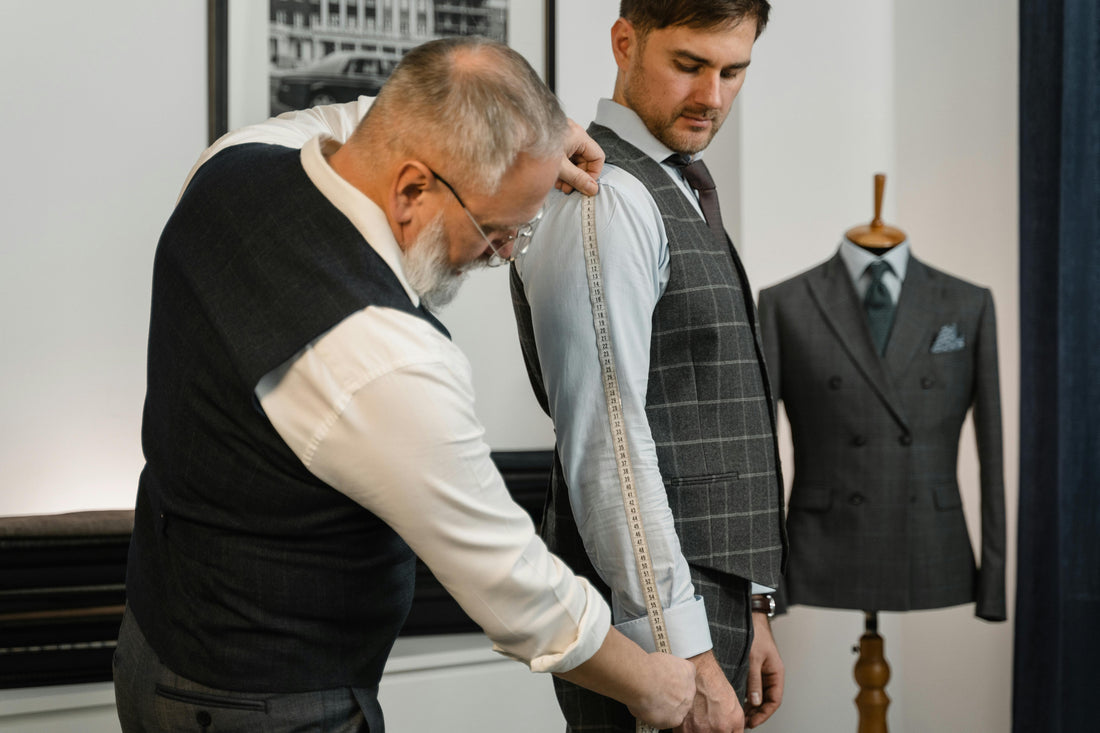
Sustainable Suits: How Ethical Formalwear Is Shaping the Future
Share
The fashion industry is undergoing a significant transformation, driven by a growing awareness of environmental and social responsibility. This shift towards sustainability is evident across all sectors, including formalwear. Gone are the days of fast fashion and disposable clothing; today, consumers increasingly demand ethical and eco-friendly options. This blog post will explore the rise of sustainable suits, examining the factors driving this change and how it's shaping the future of formalwear.
The Rise of Sustainable Fashion
Growing Consumer Awareness
Consumers are becoming increasingly aware of fast fashion's environmental and social impact. The industry has long been criticized for its reliance on unsustainable practices, including excessive water consumption, harmful chemical use, and exploitative labor practices. This growing awareness has led to a surge in demand for ethical and sustainable clothing options. Consumers seek brands that prioritize transparency, fair labor practices, and eco-friendly materials.
Eco-Conscious Designers and Brands
In response to this growing consumer demand, a wave of eco-conscious designers and brands is emerging, dedicated to creating collections that prioritize sustainability. These brands are focusing on ethical sourcing, fair labor practices, and the use of sustainable materials. This shift towards responsible practices is not just a trend; it's a fundamental transformation of the fashion industry.

What Makes a Suit "Sustainable"?
Sustainability in the suit industry encompasses a range of factors:
Sustainable Materials
Sustainable suits prioritize using eco-friendly materials such as organic cotton, hemp, recycled polyester, and ethically sourced wool. These materials have a lower environmental impact than conventional fabrics, reducing water usage, pesticide use, and greenhouse gas emissions.
Ethical Manufacturing Processes
True sustainability extends beyond the fabric to the entire manufacturing process. Ethical manufacturing ensures fair wages, safe working conditions, and transparency throughout the supply chain. It prioritizes workers' well-being and minimizes production's social and environmental impact.
Durability and Longevity
Sustainable suits are designed for longevity. They are crafted with high-quality materials and meticulous attention to detail, ensuring they can withstand the test of time. Sustainable suits reduce waste and minimize the environmental impact of constant consumption by encouraging consumers to invest in fewer, higher-quality garments.

The Benefits of Sustainable Suits
Choosing sustainable suits offers numerous benefits for both the wearer and the planet:
Reducing Environmental Impact
By opting for sustainable suits, consumers can significantly reduce their environmental footprint. Sustainable practices minimize pollution, water usage, and carbon emissions associated with traditional fashion manufacturing.
Supporting Fair Labor Practices
Choosing ethically made suits supports fair wages, safe working conditions, and human rights for garment workers. Consumers can contribute to a more just and equitable fashion industry by supporting brands that prioritize ethical manufacturing.
How Sustainable Suits Are Changing the Industry
The rise of sustainable suits is not just a trend; it's a significant force driving positive change within the broader fashion industry.
Eco-Friendly Fashion Trends
The demand for sustainable suits contributes to a broader shift towards eco-friendly fashion trends. This includes the increased use of recycled materials, the adoption of circular economy principles, and a growing focus on transparency and traceability throughout the supply chain.
The Role of Technology in Sustainability
Technological advancements are crucial in making sustainable suit production more efficient and cost-effective. Innovations like fabric recycling, waterless dyeing, and 3D printing enable brands to minimize their environmental impact while maintaining high-quality standards.
Consumer Influence on the Market
Consumer demand for transparency, sustainability, and ethical practices is a powerful driving force in the fashion industry. Consumers increasingly choose brands that prioritize sustainability as they become more informed and discerning. This growing consumer pressure pushes brands to innovate and adopt more eco-friendly practices.

Notable Brands and Designers Leading the Way
Several brands and designers are in charge of the sustainable suit movement.
Eco-Friendly Suit Brands
Numerous brands now offer sustainable suit options, utilizing organic materials, recycled fabrics, and ethical manufacturing practices. These brands are setting a new standard for responsible and sustainable formalwear.
Sustainable Design Innovations
Innovative designers are pushing the boundaries of sustainable suit design, experimenting with new materials, exploring circular economy principles, and implementing cutting-edge technologies to minimize their environmental impact. These pioneers are shaping the future of sustainable formalwear.

How to Choose a Sustainable Suit
Choosing a sustainable suit requires a bit of research and careful consideration. Here are a few tips to get you started:
Look for Certified Sustainable Fabrics
Look for certifications such as GOTS (Global Organic Textile Standard) or Fair Trade on the labels of the fabrics used in the suit. These certifications ensure that the materials were produced with minimal environmental impact and that workers were treated fairly.
Pay Attention to the Manufacturing Process
Research the brand's manufacturing practices. Look for information about its supply chain, commitment to fair labor practices, and environmental policies.
Opt for Classic Styles
Choose timeless and versatile suit styles that will remain in fashion for years. This will ensure that your suit remains relevant and wearable, reducing the need for frequent replacements.
Conclusion: The Future of Ethical Formalwear
The rise of sustainable suits marks a significant shift in the fashion industry. They offer a more eco-conscious alternative to traditional formalwear without compromising style or quality. Consumers can positively impact the planet by choosing sustainable options and supporting a more ethical and responsible fashion system. The future of formalwear lies in embracing sustainability, and brands like Suitharbor are at the forefront of this exciting evolution.